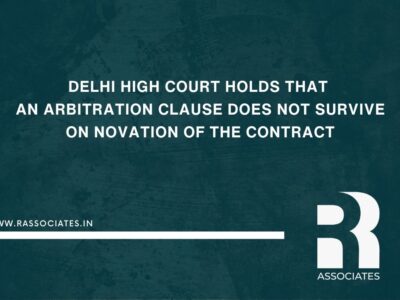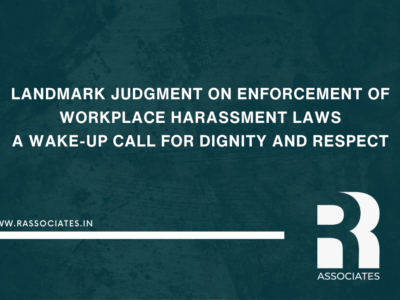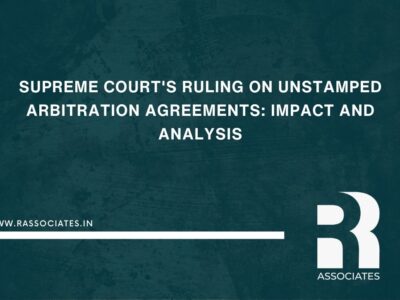
Supreme Court Clarifies Priority of Secured Creditors over Government Dues in Insolvency Cases
In a recent landmark judgment, the Supreme Court clarified the hierarchy of debt repayment in insolvency cases, emphasizing that secured creditors enjoy higher priority than dues owed to the Central or State Government. The Court highlighted the overriding effect of Section 238 of the Insolvency and Bankruptcy Code (IBC), stating that it supersedes provisions of other specific enactments such as the Electricity Act, 2003. This decision provides essential clarity on the treatment of government dues and reaffirms the principles of the waterfall mechanism under Section 53 of the IBC.
Background
The case involved Paschimanchal Vidyut Vitran Nigam Limited (PVVNL) and Raman Ispat Private Limited. PVVNL sought attachment of the respondent’s property over unpaid electricity charges. The National Company Law Tribunal (NCLT) set aside the attachment, allowing PVVNL to participate in the liquidation process as per the IBC. PVVNL contended that the Electricity Act should prevail over the IBC as it is a special enactment dealing with insolvency. However, the Supreme Court ruled that the IBC accords higher priority to secured creditors.
Secured Creditors vs. Government Dues
The Supreme Court emphasized that, in terms of the provisions of IBC, secured creditors at a higher footing than dues owed to the Central or State Government. The hierarchy of debt repayment under the waterfall mechanism of Section 53 of the IBC has been analyzed by the Supreme Court in the above judgment as under:
The priority of claims, indicated in the hierarchy of preferences, under the waterfall mechanism is therefore: Firstly, insolvency resolution process costs and the liquidation costs; Secondly, workmen’s dues for the period of 24 months preceding the liquidation commencement date and debts owed to a secured creditor in the event such secured creditor has relinquished security; Thirdly, wages and any unpaid dues owed to employees other than workmen for the period of 12 months preceding the liquidation commencement date; Fourthly, financial debts owed to unsecured creditors; Fifthly, any amount due to the central government and the state government and debts owed to a secured creditor for any amount unpaid following the enforcement of security interest; Sixthly, any remaining debts and dues; Seventhly, preference shareholders; and Eighthly equity shareholders or partners. This hierarchy or order of priority thus accords government debts [clause (e)] and operational debts [clause (f)] lower priority than dues owed to unsecured financial creditors.
The Court further observed that amounts due to the government (i.e., payable into the Consolidated Fund of India or Consolidated Fund of a State) are ranked in the same manner as those of secured creditors who do not relinquish their security interest [Section 53 (1) (e) (ii)].
The Court further held that dues payable to statutory corporations which do not fall within the description “amounts due to the central or state government” such as for instance amounts payable to corporations created by statutes which have distinct juristic entity but whose dues do not constitute government dues payable or those payable into the respective Consolidated Funds stand on a different footing. Such corporations may be operational creditors or financial creditors or secured creditors depending on the nature of the transactions entered into by them with the corporate debtor.
In the context of the present case, the Court clarified that dues owed to Distribution Licensees such as PVVNL do not fall within the description of Section 53(1)(f) of the IBC.
Clarification of the Rainbow Papers Case
The Supreme Court clarified that the judgment in the Rainbow Papers case is confined to its specific facts and cannot be universally applied. The Rainbow Papers case dealt with a resolution process while the present case involved liquidation. The Court noted that the Rainbow Papers judgment did not consider the provisions of the IBC which prioritize secured creditors over government dues. The careful design of Section 53 in the IBC places secured creditors ahead of government dues in the hierarchy of debt repayment.
Overriding Effect of Section 238
The Supreme Court emphasized the overriding effect of Section 238 of the IBC. It stated that Section 238 prevails over other specific enactments including the Electricity Act, 2003. Despite the non-obstante clauses in the Electricity Act, the court held that the IBC’s provisions which prioritize secured creditors take precedence. This ensures consistency and uniformity in insolvency proceedings, promotes the resolution process and safeguards the interests of all stakeholders involved.
Conclusion
The Supreme Court’s judgment on the hierarchy of debt repayment in insolvency cases provides crucial clarity and reaffirms the priority given to secured creditors over government dues. By upholding the overriding effect of Section 238 of the IBC, the Court ensures that the IBC’s provisions prevail in insolvency proceedings, promoting the resolution process and maintaining a fair and equitable distribution of assets. This ruling has far-reaching implications, bringing certainty to the insolvency ecosystem and strengthening the rights of secured creditors. It establishes a robust legal framework for insolvency proceedings and reinforces the principles of fair and efficient debt recovery.
Demystifying the Waterfall Mechanism under IBC
The Waterfall Mechanism under the Insolvency and Bankruptcy Code (IBC) outlines the priority of creditor claims during the distribution of assets in an insolvency case. Section 53 of the IBC governs this mechanism. Secured creditors have the highest priority, followed by unsecured and operational creditors. A “non obstante clause” is a legal provision that takes precedence over conflicting laws. Secured creditors are those with collateral, giving them a stronger claim to recover their dues. In the IBC, the Waterfall Mechanism ensures a structured approach to prioritize creditor claims based on their type and status in the insolvency process.





